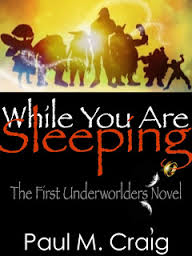 Thanks to Twitter I learnt of this book by author Paul Craig. It is only available as an e-book and I am wondering whether we will ever see it in print as it would make a very good Christmas present. (Just forward thinking here!) Here's the thing: I have for some time been searching for a book I could read with my nine-year-old. Not for lack of choices out there but for lack of what my son would go for these days. He's a peculiar reader and struggles to find something that he won't find boring after a few pages. He's grown out of dragons, has had enough of wizards, and remains too young for vampires. Enter Paul Craig's book 'While You Are Sleeping'. From the first chapter, this book was onto something. The fact that it offered my son an explanation to why hair is ruffled in the morning and an excuse from now on that he's not to blame for mislaid socks or scattered toys or vanishing consoles was reason to use this book as a bible from now on. Speaking of bible, there are parts of this book that touch on certain theological issues that would make great discussion points for maturer readers. The names of places, the food and the characters are funny, well-chosen and evidence that Paul Craig has put effort in his choices. They are very hard to forget. In short, the story is about David, a nine-year-old boy who lives with his alcoholic mother, enormously fat step-sister Kim and abusive step-dad. He is locked in his room most of the time, hungry and ignored. He hasn't learnt to read and write and his only friend in the world is his dog Robbie. His father disappeared when David was young and all he believes he has of him is a bracelet he found in the loft of his old home. For some reason whenever David slips the bracelet on, he feels safe and secure. The Underworld is a strange sort of realm, parallel to ours with trolls, dwarves and talking animals. The underworld is where the chaos makers live. Eric, one of the gang, kidnaps David and brings him to the underworld. He is unaware that by doing so, him and his friends will be embarking on the adventure of a lifetime; An adventure that involves danger, Ultimate Beings and ending up in the worst and most frightening place in the underworld: The Gulag. This is a very funny book, not without flaws (it needs at times serious editing I must say), but still worth giving a go. Our view (my son's and I) is that the author should have chosen a different accessory to a ring in the story. There is one part in the book where you could imagine them all standing there going "My Precious" if you get my drift. Some parts reminded of other novels struggling to find an independent and different role in this story but really these are things that are quickly overcome when you speed through the pages eagerly wanting to find out how it will all turn out for David. A lovable character that makes you wish he finds the break he has long deserved. To read more about the Underworlders click HERE
2 Comments
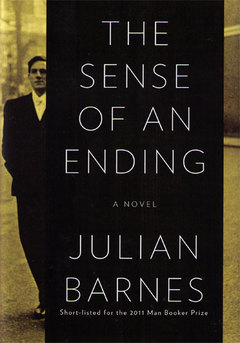 This is brilliant! For fear of sounding juvenile I shall also add that this is a novel not only well-written but so tightly knit and structurally solid that there is not one thing that I can fault it with. A gripping tale about time, history and a mystery thrown in for good measure. The Sense of an Ending is the story of sixty-year-old divorcee Tony who feels that he has lived life as he should have or at least how he was meant to have lived it; carefully, sensibly with no surprises. Never having had any expectations of how his life should turn out (either because of his lazy nature or the fact it just doesn't occur to him to live it otherwise) he feels that he is happy to end up where he is now. His will is drawn up, his daughter married off and although divorced from his wife Margaret, they still have an amicable relationship. But then out of the blue, he is contacted by the lawyer of one of his exes Veronica informing him that his friend Adrian who was in a relationship with Veronica forty years ago and who at the time committed suicide at age 21 had left him his diary after his death. A fact that had been kept from him for nearly forty years. Now you may wonder, as does Tony, why it should have taken forty years for that diary to surface. The reason we find out is that Veronica's mother had had it with her all this time and she herself had died just recently. Of course knowing about the diary and actually getting Veronica to hand it over are at the heart of this book. Things get more complicated and Tony's peaceful life is blown to smithereens. For fear of spoiling the ending I shall say no more. This is a novel (or novella really as it's only 150 pages) about life, how we live out that life or even how we decide to end it, the choices we make, the words we say and the emotions we display with our loved ones and even our enemies. This is a book about memory and old age and how with time our perception of how things that happened in our past really did happen at the time and whether we all pay a price at the end. This is a witty book with a witty ending and I urge a reading. I know you might think I just say this because it won the Booker prize for 2011 but once you have read it, you'll know it was a prize well-awarded. 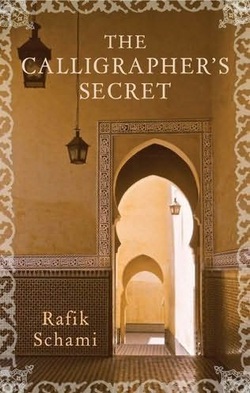 This is a story mainly about a Calligrapher called Hamid Farsi and his wife Noura who in the opening chapter we know has run away from the marital home. Rumour is rampant as to why she fled and it is only until the end of the book that the events and characters come together to give us a clear idea of the why and the when. It is a powerful opening chapter with a beautiful description of Damascus by an author who knows the city well and knows to the dot how the dwellers of that city truly live their lives. Rumours are rampant and feed people's imaginations at times when food itself is scarce and hard to come by. In Syria, as in most of the Arab countries, rumours take on a life of their own so that by the time a rumour has done the rounds and returns to its initial instigator even they fail to know it is the same one they had started themselves. But it is also a powerful weapon that can make or break a person's life and jeopardise all they have strived to achieve all their lives. There are two sides to this story and they are both based on love albeit in two different forms and what Rafik Schami is trying to conclude is that once we fall into love's trap we are helpless and would do anything and give up everything for love when it is pure and strong. There is Noura, who finds herself trapped in a love-less oppressive marriage which she feels has stripped her of all humanity. Let down by her own parents and society she feels she has reached a black tunnel until she meets the apprentice who changes her life forever and offers that glimmer of hope of a better more worthy life. Love takes many forms in this novel and it proves time and again that whenever there is a slither of hope there is always a chance for love to make its way through. There is the love between Karam the Cafe owner and Badri the barber, the love of Salman for his mother and his dear friend Sarah, and the wider forms of love between Christians, Muslims and Jews in Syria. Love comes in different forms and our relationships with each other as humans determine how open we are to receive, to give as well as to dedicate ourselves to love and the methods in which we choose to do so. There is no right or wrong we find but just that people's experiences ultimately shape their perception of what love is and one cannot give what one does not know. The Calligrapher on the other hand has a deep secret that not even his wife Noura knows about. Hamid Farsi is a Master Calligrapher and lives and breathes only for his art. He has high hopes for calligraphy and for the Arabic Alphabet and it is only towards the end of the book that we find out just what these aspirations are and how they could mean the end of all he has achieved. It is a good story, not as powerful as Schami's The Dark Side of Love but still very entertaining and gripping. Syrian politics are lightly treaded in this book and seem to come as an after-thought at the end of the book or maybe it was because the politics was the main underlying theme of The Dark Side of Love that I personally expected more of it in this book. I just felt that the social issues highlighted here had been dealt with in Schami's previous novel bar the art of calligraphy which is in itself truly fascinating. It was a pleasure to be reminded of the various forms of Arabic writing that as a school girl I had to learn and identify with as part of my Arabic studies. Calligraphy is art, politics, religion and a labour of true love and dedication in the Arab World and its journey has been a hard and challenging one for more than a thousand years. Just for a window into that world, it is well worth giving the book a go. 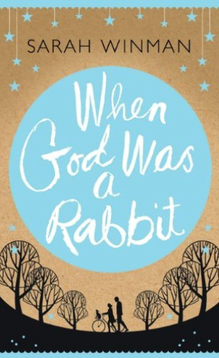 This is a story of love between a brother and sister (not in the crude sense you filthy minded person :) ) but how sibling love carries with it all the secrets, pain, and joys of youth all the way into adulthood. It is all about the strong bond between older brother Joe and his sister Eleanor (Elly) really cemented in early childhood when Elly entrusts her brother with the biggest and most horrifying secret of her childhood. It is this secret that casts its shadow on them throughout the book and shapes them into the adults they turn out to be. The book is set in London, Cornwall and New York and spans a generation growing up in 60s-70s Britain and then spending a stint of their adulthood lives in New York at the time of 9/11 . But make no mistake this is not a story about 9/11 or a religious book as the title may at first imply, it is more about people coping with life and whatever it throws at them and forces them to cope with from cancer to terrorism, this is a raw study of the fragility of life and yet the strength that individuals find in themselves when strength and understanding is all that one can do. The story's fluidity is fantastic and mind you this is a debut novel but the writing is confident, rhythmic at times if also mystical, whimsical and magical. Personally, I thought the strength of the book was in its first part and all the childhood trauma that happens there from abuse to first love whether heterosexual or gay. This is a family growing up in 70s Britain when gay rights and feminism were thrust at the forefront of social and political mainstream. The theme is rampant throughout the novel and the parents of Elly and Joe, particularly their mother are trying to adapt to the changing times by reading up on new parenthood and psychology material on how best to deal with their offspring. This is a book of hope and the writer is very reluctant to keep her reader in darkness and despair although she succeeds in taking them to the brink. There are certain over-long descriptions at times and it's a roller coaster keeping up with Elly and her emotions. Is she a likable character though? That I will leave for you to judge and maybe let me know? 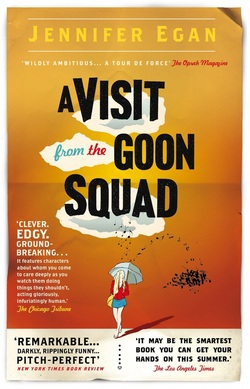 If you look up the word "goon" in the Dicitonary one of its meanings would be someone who has committed a crime. Although Egan doesn't use it in that sense in the title of her book it is still a very relevant description of time and how it swiftly, maybe even mercilessly catches up with even the best of us. But the question that poses itself is what will you have done with your time when that goon makes itself visible? "Time is a goon right? you gonna let it push you around?" appears twice in the book, once close to the beginning and once towards the end of the novel. By then the characters have matured (or not) and start to realize the consequences of their decisions taken twenty years ago in the throes of their youth and the start of their adult lives when one feels invincible and for some characters maybe overwhelmed by the life ahead of them. This is a happy and sad book. A book about relationships, breakups and love in all places and all forms. It is a book about new beginnings and the end of dreams. A book about death in all its forms; not only the physical but the dying of dreams, of youth and at times of hope. The writing is so fluid and the transition between characters and their interactions is so subtle that you find yourself unwilling to stop the journey and once it ends come the final scene all you want to do is live it again and again. This book begs a second, a third maybe even a fourth reading if you've got the time. 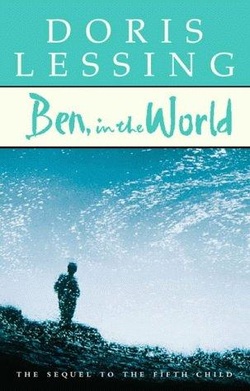 This is the sequel to The Fifth Child In this sequel we find Ben Lovatt, the neanderthal, out in the world on his own. With no family or friends he is left all alone to fend for himself. So the question here is: How does a person with limited intelligence and with a lack of social skills get by alone in the world? The answer: with real difficulty as we find in this novel and also with extreme ease. Sadly, just as happiness comes easily at times, cruelty takes place just as easily too. This sequel is brilliant in that we learn more about what is taking place inside Ben's head. A thing we kind of wanted more of in The Fifth Child where it was more about his parents and siblings and their struggle to cope with the fact of having such a "person" in their midst. The violence, the hatred and ultimately the betrayals take their toll on Ben and throughout the book he remains wary of people and friendships. At the beginning of the book Doris Lessing speaks in a foreword about "The Cages" found in research laboratories in London. The Cages in the book have been placed in Brazil and so we know that something terrible is going to be attached to their mention. It is both shocking and deeply sad to know that in some way we could all see this coming and yet its harrowing arrival still takes the reader by surprise. This is a harrowing book not in the graphic sense but in the questions it poses to the reader. What is humanity and how do we measure human life? What motivates us to exploit the disadvantaged and how common is it to see something wrong happening and yet not try to stop it? Can a wrong ever be righted? Throughout the story there is a deep sense of foreboding that gets larger and larger as page after page Ben's future becomes more and more complicated. And at the end of the book not only as the reader are you at your last breath but left with a deep sense of guilt that will make you want to read the book again for Ben's sake. 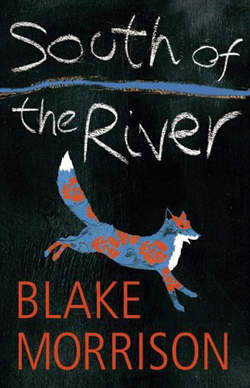 At first I was going to label this book as a bit of a tedious read. Packed with characters (five), it is quite trapping. Quite trapping to the extent that it could be suffocating at times. But I do believe that for fictional characters to invoke in me such a degree of irritation (Ned) and boredom (Jack) only means that the writer is a very very good one. The story as the title suggests takes place along 'South of the River' and is rich with description and factual events. It broaches politics (the high hopes envisaged by all as the Labour party comes into power and progressively its demise), sex, fidelity, family and family values, racism, death, partnership, women's liberation, fox hunting as well as a variety of other issues that come about in the course of the novel as the characters go about their daily lives. Lives very similar to our own. It does unmask what British society has become; namely the society that the Blair government has produced whether intentionally or not but has nonetheless. I won't pass my judgement onto you but will leave you to make your own. As I mentioned I stopped short of giving this book an undeserving review. The whole book (according to the author in one of his interviews) was inspired by foxes that lurked around the area of his residence in Blackheath. At various parts of the book we are taken through stories of foxes ranging from the amusing to the utterly incredulous to the absolutely horrifying to say the least. I was amused but not a believer until last night when I was rudely awakened by the sound of a screeching bone chilling wail which, as I looked out of the window, belonged to a squirrel whose ill fortune had made it breakfast to a canny fox. I will never forget that howl or that wail that seemed to be not only an echo but a confirmation of what Morrison had written and now I know without a shadow of a doubt that it will be some time before I forget this book, if ever. 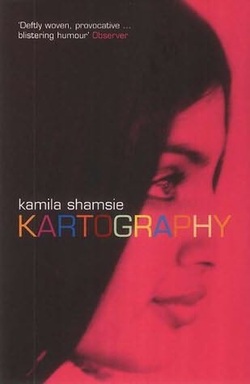 Soul mates from birth, Karim and Raheen finish one another's sentences, speak in anagrams and lie spine to spine. They are irrevocably bound to one another and to Karachi, Pakistan, a city that is violent, polluted, corrupt, vibrant, brave and ultimately home. As the years go by they let a barrier of silence build between them until they are brought together during a dry summer of strikes and ethnic violence and their relationship stands posed between strained friendship and fated love. What I thought: Let me first tell you a story (true one) about me. A time not so long ago (it doesn't all have to be real, does it?) I fell in love. I remember it like yesterday. The meeting of the eyes, the butterflies in the stomach, the stolen glances, all the innnocence that first love brings with it. And then of course that long awaited kiss that sends shivers up and down my spine to this day (maybe now with maturity also comes a cringeing grimace as well). The years have gone by considerably since that first flutter of the heart and yet its bittersweet memory lingers on. If you have ever felt that way then you will get to revisit that feeling when you read Kartography. Kamila Shamsie has managed through her superb character Raheen to translate onto pages what it feels like to be overwhelmingly in love or better to the point up to the ears in it. There is almost a sense of denial that a love could be so strong as we see Raheen doing her best to pretend that it is not there or hanging on to disaster just so that it might actually prove her right and that the love she imagined was there was never there at all. It is a tale of deceit on another level and how parents lie or hide events from their children hoping to protect them only to find that they have messed them up even more. They do it unintentionally and you end up unbelievably willing to exonerate them of blame when you find out how messed up the parents are to begin with. This is a story also about the scattered people of Pakistan. Those who left before it all went bad and yet kept up with the news to prove that they had not forgotten and those who stayed behind to deal with the horrors of daily life. Both seem lost and out of place in each other's lives. This is a story about the truest love man is capable of but also about what mankind does to each other in the name of certain beliefs. This story will linger with you for a considerable time. This is a very affecting book and you need to have two things ready before you start reading: A box of tissues and water-proof mascara (I recommend Maybelline). Enjoy! 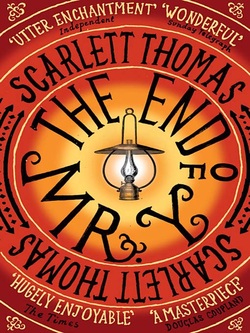 I had read a review about this book when it was first published and it has been on my reading wish list for some time. So although I am now swamped with a stack of books waiting to be read when I happened upon this book, I just had to have it in spite of all my promises to myself to stop buying books for now. Both pocket and time are less than desired. However some books just call out to you. Of course it sounds strange but some books really speak to you and no more so than this one. And on this note I introduce to you The End of Mr. Y, a 'cursed book' that author Scarlett Thomas' main character Ariel happens upon one day after sequence of 'accidental' events. It is as if fate had wanted her to find it. As soon as she finishes reading it, Ariel is thrown head on into an exhilarating world of mystery, love, and time-travel. This is not an easy book to read but if like myself you enjoy debates regarding the creation of the universe and phenomenology, then you will seriously enjoy this well researched book. Finally, a book that deals with big ass issues in an intelligent well thought out manner. Two things that I did not like in the book, the fact that parts of the book felt more like a computer game and the second (probably more disappointing bit) is the epilogue. I won't say more but hopefully you will take the time to read the book and make up your own mind. Stars: * * * * 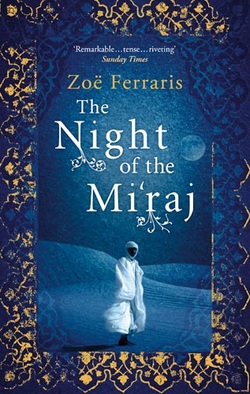 I have had this book on my wish list for nearly a year now and then voila I was given it as a Christmas present. Excitedly, I managed to read it in one sitting especially that I had just finished reading another book about Saudi Arabia called The Consequences of Love by Sulaiman Addonia. The story is about a sixteen-year-old girl, Nouf ash-Shrawi, who is found dead in the desert of Saudi Arabia. The daughter of a wealthy Jeddah family, there are questions whether she ran away or was abducted and left to die in the desert. To answer these questions, Othman, the eldest son of the ash-Shrawi family enlists the help of his life-long friend and desert guide, Nayir. A devout and strict Muslim, we find that Nayir struggles with issues of his own. Being a strictly religious man he is faced with qualms upon having to work closely with Othman's fiancee, the lab technician Katya Hijazi. A big problem for him as he has never even had a chance to talk to a woman. Also, he had known Nouf when she was an innocent child taking her on excursions in the desert but is now faced to consider her initially as victim and then later as a woman pregnant out of wedlock planning to take her fate into her own hands. This is an attempt at a crime novel although the plot is not so intricate and you will guess a lot of where it is going way before the end although I must admit that I did not see the ending coming and it took me totally by surprise. And I think that is why I liked the book. A gripping novel and although at times slow paced but the descriptions of the desert and the use of the Koranic verses are a window into an exotic culture that is fascinating if not terrifying and claustrophobic. This is not a novel about Saudi Arabia. Little is learned about the country itself and a lot of the stereotypes that have become associated with the country are all there; what was fascinating though that both The Consequences of Love and The Night of the Mi'raj had pink shoes in them. The two events are unrelated but connected to a total stereotyping pertaining to the attitude of men in Saudi assuming that all women must like pink. This is an enjoyable and gripping read and the fact that the author herself lived in a strict Saudi community for a while gives it a degree of authenticity if not sadly complete accuracy at times which leaves one with a sense that there is little that is revealed of a country veiled in complexity. Note: The follow-up book is called City of Veils |
Categories
All
|

 RSS Feed
RSS Feed
